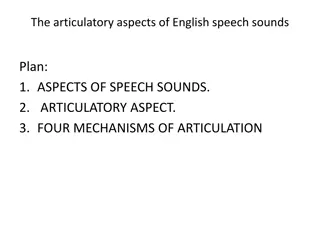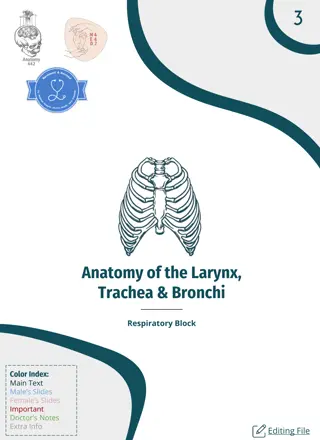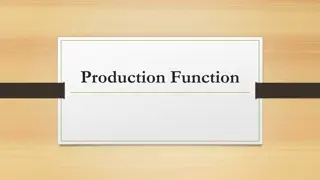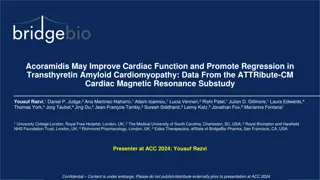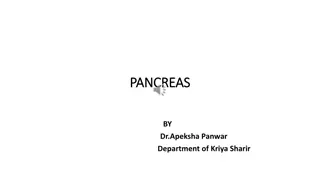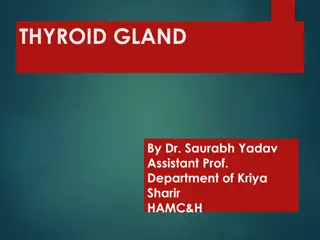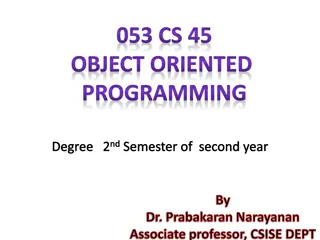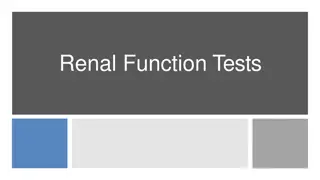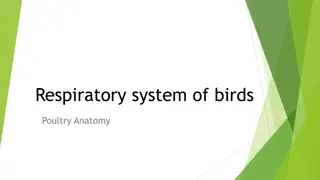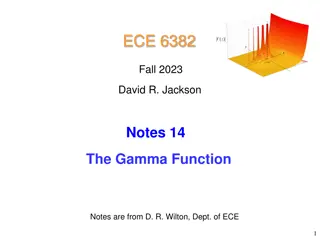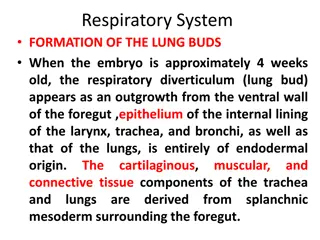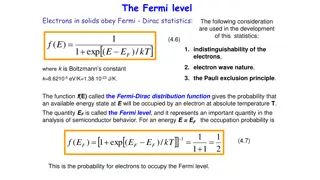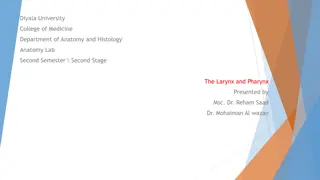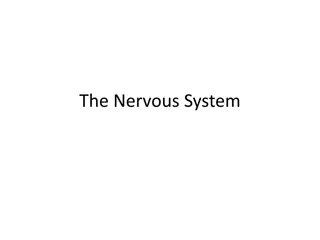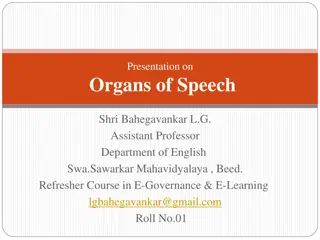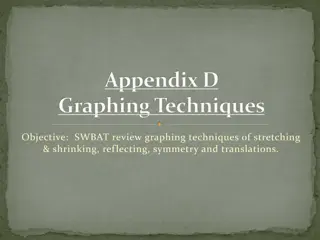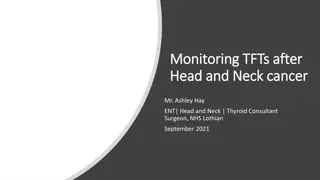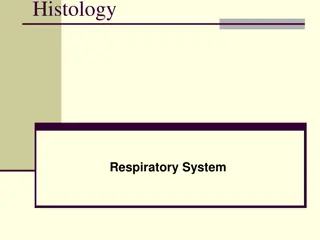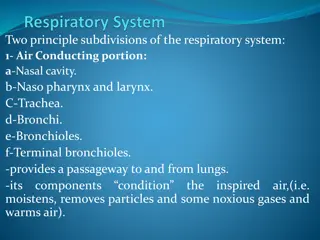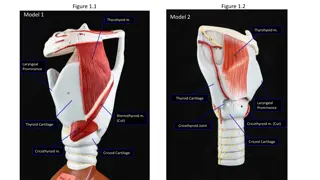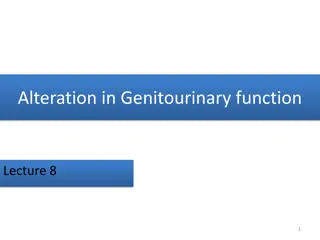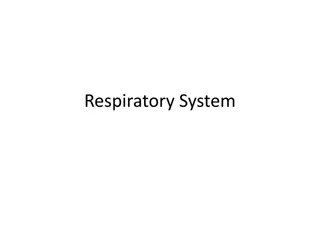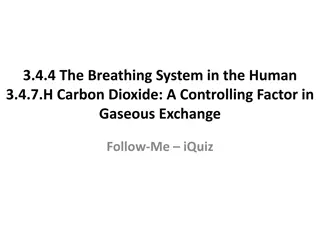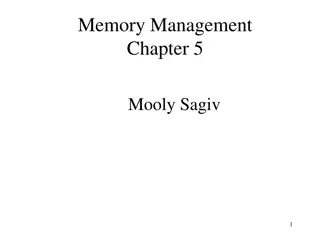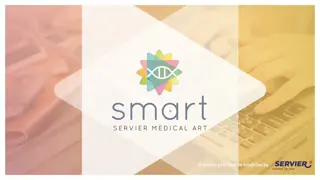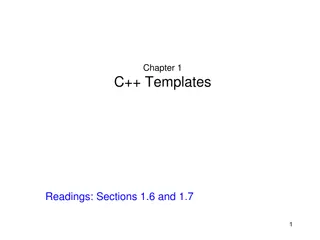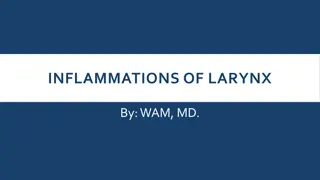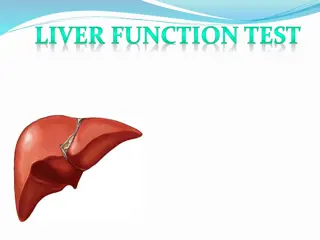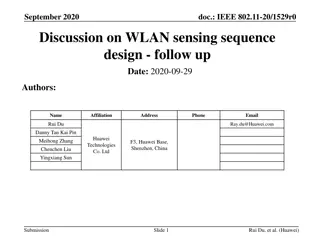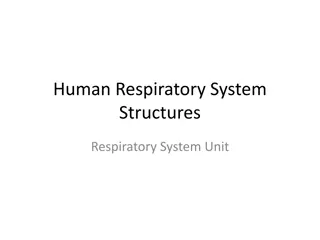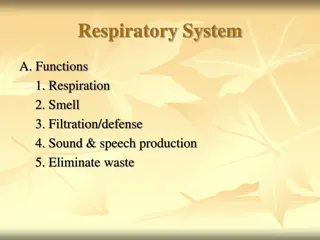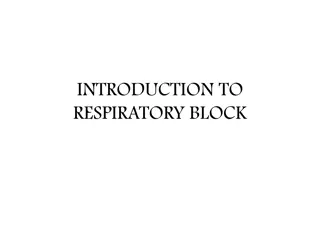Functions of SEBI: Protective, Regulatory, Development
SEBI, the Securities and Exchange Board of India, performs various functions to protect investors, regulate the market, and promote development. Its protective function includes prohibiting insider trading and price rigging, and promoting fair practices. Its regulatory function involves establishing
7 views • 5 slides
Function Based Thinking
Function-based thinking in Missouri Schoolwide Positive Behavior Support, emphasizing data-based decision-making, mission clarity, and effective teaching practices. Understand how behavior is related to the environment and how environmental interventions play a key role in shaping expected behaviors
6 views • 27 slides
Anatomy and Physiology of the Larynx: Overview and Cartilages
Exploring the anatomy and physiology of the larynx, this content discusses the location, movements, and cartilages of the larynx. Details on the unpaired (thyroid, cricoid, epiglottis) and paired (arytenoid, corniculate, cunieform) cartilages are provided, along with their functions and characterist
9 views • 17 slides
Understanding Articulatory Aspects of English Speech Sounds
Speech sounds are integral to language, with articulatory, acoustic, auditory, and functional aspects. Articulation involves mechanisms like the power, vibrator, resonator, and obstruction mechanisms. The power mechanism includes the respiratory system, while the vibrator mechanism operates through
10 views • 10 slides
Anatomy of the Larynx, Trachea, and Bronchi: Respiratory System Overview
The larynx, trachea, and bronchi are vital structures of the respiratory system with distinct functions and anatomy. The larynx houses vocal cords, aids in breathing, voice production, and swallowing. It is interconnected with major arteries, veins, and nerves in the neck. The trachea extends from t
12 views • 19 slides
Understanding Renal Function Tests: Lecture Insights on Kidney Function and Structure
This lecture delves into the essential aspects of renal function tests, exploring the functional units of the kidney, the role of nephrons in maintaining homeostasis, and the intricate processes of filtration, reabsorption, and secretion within the renal tubules. Key topics include the hormonal and
4 views • 17 slides
Understanding the Production Function in Economics
The production function is a vital mathematical equation that determines the relationship between factors of production and the quantity of output. This function plays a crucial role in optimizing production efficiency by assisting in decision-making related to input levels, output quantities, and c
0 views • 9 slides
Acoramidis Improves Cardiac Function in Transthyretin Amyloid Cardiomyopathy
Acoramidis, a next-generation TTR stabilizer, shows promising results in improving cardiac function and promoting regression in Transthyretin Amyloid Cardiomyopathy. The ATTRibute-CM Cardiac Magnetic Resonance Substudy evaluated changes in cardiac structure, function, and amyloid burden after treatm
0 views • 8 slides
Comprehensive Overview of Pancreas Function and Structure
Pancreas is a vital organ in the abdomen with dual exocrine and endocrine functions. As an exocrine organ, it secretes digestive enzymes and bicarbonates into the duodenum for food breakdown. In its endocrine role, the pancreas regulates blood sugar levels by secreting insulin, glucagon, somatostati
1 views • 16 slides
Understanding the Thyroid Gland: Functions and Hormone Synthesis
The thyroid gland is a vital endocrine gland located below the larynx, responsible for producing thyroid hormones essential for regulating metabolism. This gland consists of follicles lined with follicular cells, producing thyroglobulin and thyroid hormones T3 and T4. Iodine plays a crucial role in
0 views • 40 slides
Understanding Function Templates and Generic Programming in C++
Dive into function templates and generic programming in C++, exploring how to create reusable code for multiple data types. Learn about generic function templates, class templates, and how to declare function templates efficiently. Enhance your understanding of type-independent patterns and how to i
1 views • 32 slides
Understanding Renal Function Tests and Kidney Health
Renal function tests are essential for diagnosing and monitoring kidney health. These tests assess functions like glomerular filtration, tubular reabsorption, and endocrine functions of the kidneys. Common indicators include serum urea, creatinine levels, and more. It's crucial to evaluate renal fun
0 views • 34 slides
Understanding RISC-V Function Calls
In RISC-V function calls, the decision to place variables in caller-saved or callee-saved registers depends on various factors such as recursion and variable usage within the function. Additionally, understanding how function arguments are passed and stored is crucial for efficient program execution
0 views • 5 slides
Anatomy of the Respiratory System in Birds: A Detailed Overview
The respiratory system in birds, including poultry, consists of various components such as nostrils, nasal cavities, larynx, trachea, syrinx, air sacs, and lungs. Each part plays a crucial role in respiration, with unique features adapted to avian physiology. Understanding the anatomy of the avian r
1 views • 19 slides
Introduction to Gamma Function and Equivalent Integral Forms
The Gamma function is a versatile mathematical function that generalizes the factorial function to non-integer and complex values. It has various integral definitions such as the Euler-integral form. The proof of the factorial property of the Gamma function is demonstrated through analytical continu
1 views • 20 slides
Development of the Respiratory System in Human Embryos
The formation of the lung buds, larynx, trachea, bronchi, and lungs in human embryos involves complex processes where various structures develop from different tissue origins. The lung buds arise from the ventral wall of the foregut, while the larynx, trachea, and bronchi epithelium are of endoderma
7 views • 19 slides
Understanding Fermi-Dirac Statistics in Solids
Electrons in solids obey Fermi-Dirac statistics, governed by the Fermi-Dirac distribution function. This function describes the probability of electron occupation in available energy states, with the Fermi level representing a crucial parameter in analyzing semiconductor behavior. At different tempe
0 views • 9 slides
Comprehensive Overview of Head and Neck Cancer by Dr. Swati Lambor, ENT Consultant
Cancer of the head and neck region poses a significant threat, with various types of tumors affecting areas like the nasal cavity, paranasal sinuses, mouth, larynx, salivary glands, and thyroid. Dr. Swati Lambor, a skilled ENT consultant at Manipal Hospital in Goa, sheds light on the causes, progres
0 views • 72 slides
Anatomy of the Pharynx: Structure and Function
The pharynx is a musculomembranous tube that connects the nasal and oral cavities to the larynx and esophagus. It is divided into three parts: nasopharynx, oropharynx, and laryngopharynx, each with unique features and functions. Muscles like pharyngeal constrictors and palatopharyngeus play a crucia
0 views • 31 slides
Understanding the Nervous System: Structure and Function
The nervous system is a complex network divided into the central nervous system (CNS) and peripheral nervous system (PNS). Neuroglia, or supporting cells, play vital roles in maintaining the health and function of neurons. Neurons, the fundamental units of the nervous system, vary in structure and f
1 views • 29 slides
Understanding the Organs of Speech: An Insightful Presentation
Delve into the fascinating world of organs of speech with this comprehensive presentation by Assistant Professor Shri Bahegavankar L.G. Learn about the respiratory system, phonatory system, and articulatory system, exploring the functions of the lungs, muscles of the chest, windpipe, larynx, and voc
0 views • 29 slides
Overview of Graphing Techniques and Functions
Explore graphing techniques including stretching, shrinking, reflecting, symmetry, translations, and various types of functions such as the identity function, square function, cube function, square root function, cube root function, and absolute value function. Understand vertical and horizontal shi
0 views • 25 slides
Monitoring Thyroid Function After Head and Neck Cancer Treatment
This collection of images and data discusses the importance of monitoring thyroid function after head and neck cancer treatment, specifically focusing on post-treatment thyroid function tests, audits of practices in head and neck units, thyroid function post laryngectomy, and the significance of det
0 views • 11 slides
Overview of Mammalian Respiratory System Histology
The respiratory system in mammals functions to warm, humidify, and cleanse the air as it travels from the nostrils to the lungs. It comprises the nasal cavity, pharynx, larynx, trachea, bronchi, and bronchial tree. The epithelial linings vary in different parts, containing specialized cells and glan
0 views • 14 slides
Understanding the Respiratory System Components and Functions
The respiratory system consists of two primary subdivisions: the Air Conducting portion and the Respiratory portion. The Air Conducting portion includes nasal cavity, naso-pharynx, larynx, trachea, bronchi, bronchioles, and terminal bronchioles, providing a pathway to and from the lungs while condit
0 views • 12 slides
Anatomy of the Larynx: Detailed Illustrations and Muscle Actions
Detailed illustrations and descriptions of the anatomy of the larynx, including structures such as the thyroid cartilage, epiglottis, vocal folds, and muscles like the cricothyroid and posterior cricoarytenoid. The images depict the laryngeal landmarks, ligaments, and nerves, providing a comprehensi
0 views • 5 slides
Understanding Alterations in Genitourinary Function: An Overview
The genitourinary system comprises the urinary and reproductive organs, with the kidneys, ureters, bladder, and urethra playing crucial roles. Maintaining proper function involves factors like renal blood flow, glomerular filtration, tubular function, and urine flow. Nephrons are the functional unit
0 views • 58 slides
Understanding the Respiratory System and Its Functions
The respiratory system is vital for gas exchange in the body, involving processes like pulmonary ventilation, external and internal respiration. It includes organs like the nose, pharynx, larynx, and trachea, which help in conducting air to the alveoli. This system facilitates the exchange of oxygen
1 views • 14 slides
Understanding the Breathing System in Humans
Explore the intricacies of the human breathing system, including the role of carbon dioxide in gaseous exchange. Test your knowledge with interactive quizzes and learn about the functions of different respiratory components such as the larynx and trachea. Dive into topics like breathing rates, gas e
0 views • 50 slides
Understanding Memory Management in Computer Systems
Dive into the intricacies of memory management with Chapter 5 by Mooly Sagiv. Explore topics such as heap allocation, limitations of stack frames, currying functions, browser events in JavaScript, static scope for function arguments, result of function calls, closures, and more. Gain insights into m
0 views • 86 slides
Comprehensive Visual Guide to Respiratory System Anatomy
Explore a vivid collection of images detailing various components of the respiratory system, including the nasal cavity, conducting zone, vocal cords, larynx, and more. These educational resources are licensed under Creative Commons Attribution 3.0, allowing you to utilize them for presentations and
0 views • 13 slides
Understanding C++ Templates: Generic Programming and Function Templates
Exploring the concepts of C++ templates including type-independent patterns for working with various data types, generic class patterns, function templates, and their usage. The reading covers examples of function templates for finding maximum values in vectors and highlights the importance of clear
0 views • 12 slides
Overview of Laryngeal Inflammations in Pediatric Patients
This comprehensive overview covers various inflammations of the larynx in pediatric patients, including laryngotracheitis, supraglottitis, diphtheria, chronic non-specific laryngitis, tuberculosis (TB), scleroma, and voice-induced disorders. It discusses causes, symptoms, diagnostic features, treatm
0 views • 10 slides
Understanding Stridor: Causes, Symptoms, and Grades
Stridor is an abnormal high-pitched sound caused by disrupted airflow in the larynx or windpipe, often affecting children. It can indicate various underlying issues based on the type of stridor present. Grades of stridor range from mild to severe, with different treatment approaches for each. Infect
0 views • 31 slides
Understanding Liver Function Tests and Their Significance
The liver carries out essential metabolic, excretory, protective, synthetic, and storage functions in the body. Liver function tests play a crucial role in screening for liver dysfunction, recognizing patterns of liver disease, assessing patient prognosis, monitoring disease progression, and evaluat
0 views • 48 slides
Analysis of WLAN Sensing Sequence Design Using Ambiguity Function and Range-Doppler Map
In this document, the authors from Huawei discuss the analysis of employing the ambiguity function for WLAN sensing sequence design. They delve into the ambiguity function's definition, analysis, and its comparison with the range-Doppler map. The document highlights the importance of ambiguity funct
0 views • 15 slides
Function-Based Behavior Support Plans: A Comprehensive Guide
Explore the process of developing Function-Based Behavior Support Plans (BSP) using Functional Behavioral Assessment (FBA). Understand the concepts of function and functional behavior assessment, learn how FBA/BSP fits within a multi-tiered support system, and practice developing BSP for students. D
0 views • 74 slides
Exploring the Human Respiratory System Structures
Delve into the intricate structures of the human respiratory system, from the essential organs like the lungs and diaphragm to the pathways such as the nasal cavity, mouth, pharynx, and trachea. Learn about the functions of key components like the epiglottis, larynx, bronchi, bronchioles, and alveol
0 views • 12 slides
Overview of the Respiratory System Functions and Anatomy
The respiratory system has vital functions such as respiration, smell, filtration/defense, sound & speech production, and waste elimination. It consists of external (root, bridge, apex, and nostrils) and internal components (nasal cavity, pharynx, larynx). The nose/nasal cavity provides an airway fo
0 views • 37 slides
Comprehensive Overview of Respiratory Block for Medical Students
This respiratory block introduces students to the anatomy, histology, muscles involved in respiration, embryology, radiological anatomy, and management of respiratory disorders. It covers topics like the nasal cavity, pharynx, larynx, trachea, bronchi, lungs, pleura, bronchial tree, and mediastinum.
0 views • 23 slides



